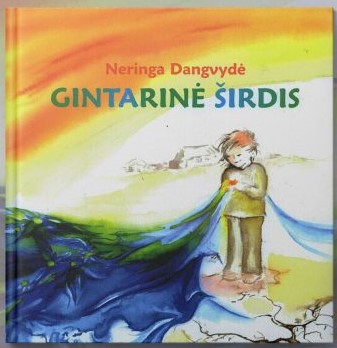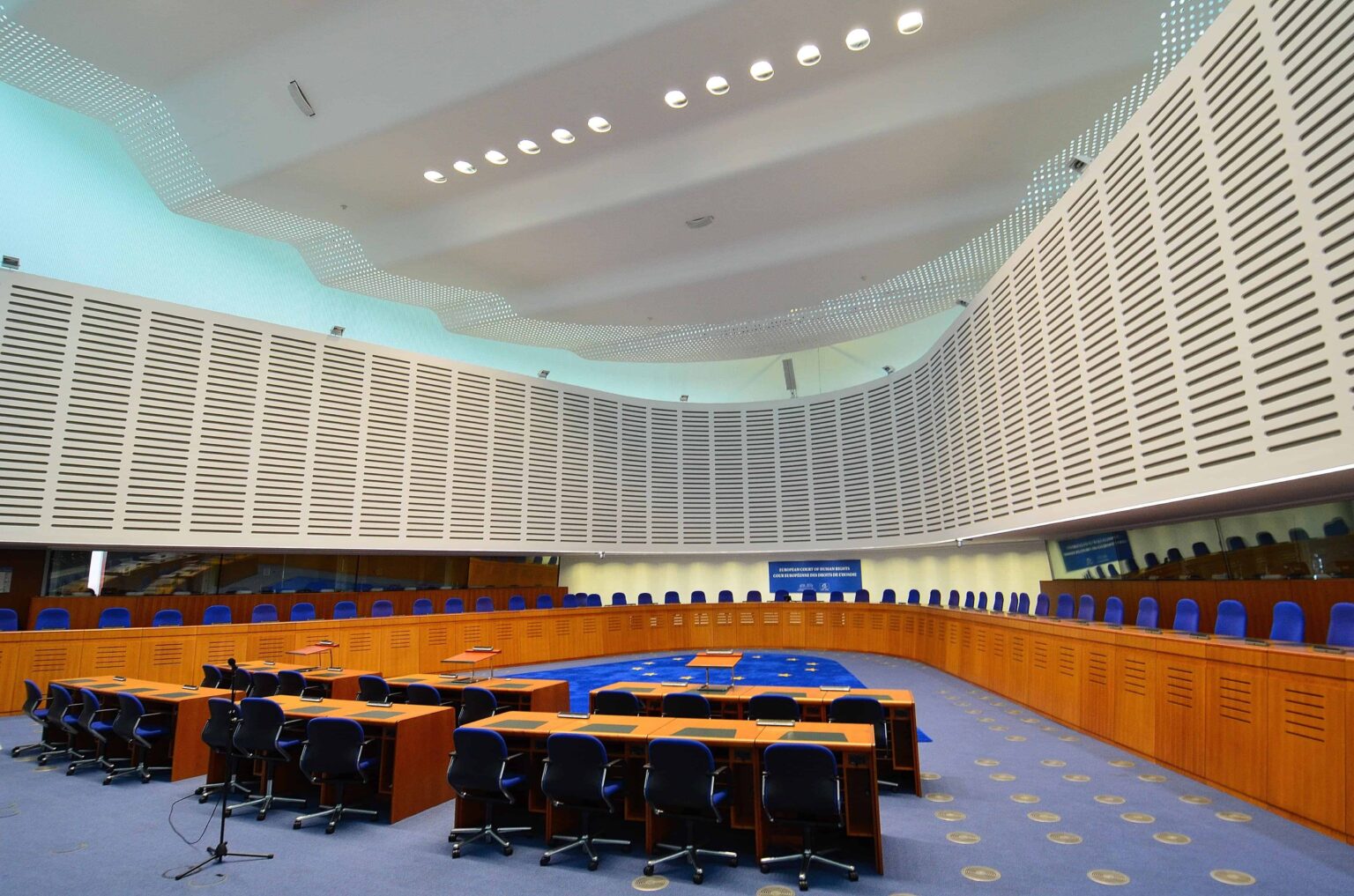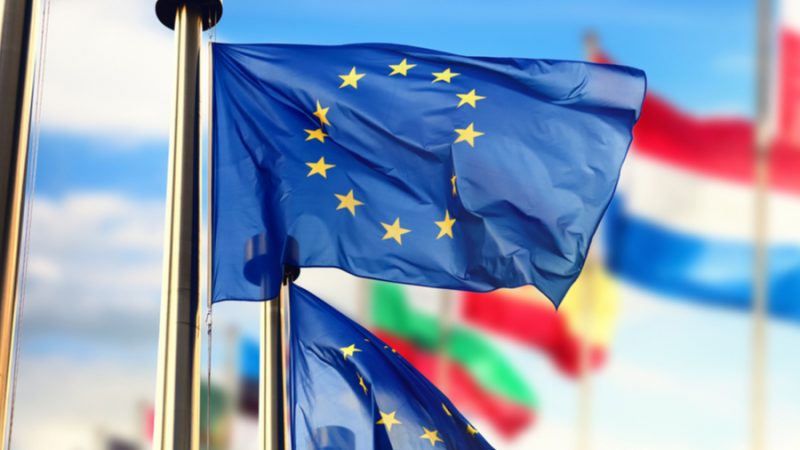European Court rules against Lithuania labelling LGBTI-inclusive fairytale book harmful to children

Today, the European Court of Human Rights found a violation of Article 10 (freedom of expression) on the account that labelling a book of fairy tales as harmful to children solely because of LGBTI content breached the European Convention.
Published in 2013 by the Lithuanian University of Educational Sciences and written by the late lesbian writer, Neringa Dangvyde Macate, the book was entitled ‘Amber Heart’ (‘Gintarinė širdis’), and contained fairy tales aimed at nine-ten-year olds, with partial funding from the Ministry of Culture. Adapted from traditional fairy tales, ‘Amber Heart’ included characters from different ethnic groups or with intellectual disabilities and addressed issues such as stigmatisation, bullying, divorced families and emigration. Two of the six fairy tales in the book had story lines about relationships and marriages between persons of the same sex.
On the book’s publication, eight members of the Lithuanian Parliament sent a letter to the University, relaying to it concerns expressed by associations representing families about literature which “sought to instil in children the idea that marriage between persons of the same sex was a welcome phenomenon”.
The Inspectorate concluded that the two fairy tales which depicted same-sex couples did not comply with a provision in Lithuania’s ‘Minors Protection Act’, stating that any information which “expresses contempt for family values” or “encourages a different concept of marriage and creation of family than the one enshrined in the Constitution or the Civil Code” is considered as having a negative effect on minors. The Inspectorate recommended that the book be labelled with a warning that it might be harmful to children under 14 years of age.
The University’s publishing house suspended distribution of the book in March 2014. A year later distribution was resumed, with the book bearing a warning label, in line with the Inspectorate’s recommendation.
Macate lodged civil proceedings against the University, arguing that depiction of same-sex relationships could not be considered harmful for children of any age, but in 2019 the courts ultimately endorsed the measures taken against the book and dismissed her claim. In particular, the Vilnius Regional Court found that certain passages were too sexually explicit and that the way in which the fairy tales depicted a new family model raised the question of whether the applicant herself had sought to discriminate against those who held values different from her own.
In 2020, Neringa Dangvyde Macate passed away and her mother continued proceedings on her behalf, taking the case to the European Court. ILGA-Europe had intervened in this case jointly with Article 19 and Professor David Kaye (former UN Special Rapporteur on Freedom of Expression). Read more about our intervention here.
In today’s Grand Chamber judgment, the European Court held, unanimously, that there had been: a violation of Article 10 (freedom of expression) of the European Convention on Human Rights. The Court found that the measures against the applicant’s book had intended to limit children’s access to information depicting same-sex relationships as essentially equivalent to different-sex relationships.
In particular, it could not see how, according to the national courts and the Government, certain passages – a princess and a shoemaker’s daughter sleeping in one another’s arms after their wedding – had been sexually explicit. Nor was it convinced by the Government’s argument that the book had promoted same-sex families over others. To the contrary, the fairy tales had advocated respect for and acceptance of all members of society in a fundamental aspect of their lives, namely a committed relationship.
As a result, it concluded that restricting children’s access to such information had not pursued any aims that it could accept as legitimate.
Welcoming the judgement, ILGA-Europe’s Head of Litigation, Arpi Avetisyan said, “The Court’s message is clear: Protection of children cannot be used as an excuse for censoring information about LGBTI rights, both on the part of the authors for promoting diversity and equality, and for children to learn about acceptance of all members of the society on an equal footing.
“This case also sends another important message, which is that all families are equal. In the Court’s own words: Promoting one type of family at the expense of another is never acceptable under the [European] Convention.”
The Court ordered Lithuania to pay 17,000 Euro to cover non-pecuniary damages and litigation costs. The funds are to be paid to the author’s mother.
Macaté v. Lithuania

Freedom of expression, warning labels restricting artistic expression.
Submitted jointly by ILGA-Europe, Professor David Kaye, International Justice Clinic, University of California, Irvine, School of Law and ARTICLE 19: Global Campaign for Free Expression.
ILGA-Europe welcomes a landmark European Court of Human Rights judgment on online hate speech

Today, the European Court of Human Rights found Lithuania’s failure to investigate online hateful comments against a gay couple to violate their rights to private and family life as well as being discriminatory on the ground of sexual orientation.
The landmark case of Beizaras and Levickas v. Lithuania originated after one of the applicants posted a photograph of him kissing his male partner on his Facebook page, which led to hundreds of online hate comments. Some were about LGBT people in general, while others personally threatened the couple. The applicants alleged that they had been discriminated on the ground of sexual orientation, on account of the public authorities’ refusal to launch a pre-trial investigation into hateful comments left on the first applicant’s Facebook page. They also argued that the Lithuanian authorities’ refusal to launch a pre-trial investigation had left them without the possibility of legal redress.
In a unanimous judgment, the Court found violation of Article 14 (prohibition of discrimination) of the European Convention on Human Rights, taken in conjunction with Article 8 (right to respect for private and family life), and Article 13 (right to an effective remedy).
The Court reiterated the authorities’ positive obligation under Article 8 to effectively investigate whether the comments regarding the applicants’ sexual orientation constituted incitement to hatred and violence. The Court considered that the failure to discharge such obligation was due to the “discriminatory state of mind” of the authorities. Accordingly, the Court held that it constituted violation of Article 14, taken in conjunction with Article 8 of the Convention.
The Court found that the statistics provided inter alia by the third-party interveners and ECRI’s report demonstrated a clear lack of willingness by the Lithuanian authorities to prosecute perpetrators. The applicants had been denied an effective domestic remedy in breach of Article 13 of the Convention.
Importantly the Court reaffirmed the right of individuals to openly identify themselves as gay, lesbian or any other sexual minority and the growing general tendency to view relationships between same-sex couples as falling within the concept of “family life”.
The Court’s judgment was informed by a third party intervention submitted jointly by the AIRE Centre (Advice on individual rights in Europe), ILGA-Europe, the International Commission of Jurists (ICJ) and the Human Rights Monitoring Institute (HRMI).
“Today’s judgment is ever more important in establishing State’s positive obligations in tackling hate speech against LGBTI people in Lithuania and across Council of Europe member States amidst the rise in hate in a number of countries,” said Arpi Avetisyan, Senior Litigation Officer, ILGA-Europe.
“The Court was clear that such ‘undisguised calls on attack’ on the persons’ physical and mental integrity require protection by the criminal law and public authorities must apply the law without discrimination. We hope this judgment will be implemented duly and promptly ensuring equality and safety for the LGBTI community in Lithuania.”
Robert Wintemute, Professor of Human Rights Law at King’s College London (UK) and co-representative of the applicants, said: “I am very pleased that the European Court of Human Rights has sent such a strong message to national authorities across Europe that they must take anti-LGBTI hate speech seriously, and investigate complaints, even about a single hateful comment on Facebook, let alone one that LGBTI persons should be killed. .”
Tomas Vytautas Raskevi?ius, Member of the Vilnius City Council (Lithuania) and co-representative of the applicants, said: “The European Court of Human Rights has concluded today that the Lithuanian authorities systematically fail in effectivelly responding to homophobic hate speech online. I am positive that this judgment will become a powerful entry point to start conversation with Lithuanian police, prosecutors and judges about the measures that we must take in order to encourage reporting and effectivelly tackle anti-LGBT crimes..“
According to Vladimir Simonko, Executive Director of Lithuanian Gay League (LGL), this case raises questions of considerable public importance about the nature and scope of the positive obligation of Member States under the European Convention of Human Rights (ECHR) to protect individuals from homophobic hate speech and incitement to violence.
“It is appalling that the Lithuanian Government were challenging the very fact that a civil-society organisation might also have a legitimate interest in the outcome of the applicants’ case, and thus questioning the fundamental role of non-governmental organisations in performing a “public watchdog” function in a pluralist, democratic society,” said Simonko.
According to Livio Zilli, Senior Legal Adviser & UN Representative with the International Commission of Jurists (ICJ): “Among other things, the ICJ welcomes the Court’s finding in its judgment today that, as a result of their discriminatory attitudes towards the applicants’ sexual orientation, the authorities had denied them an effective domestic remedy in connection with their complaints about a breach of the right to private life under the Convention.”
- ILGA-Europe’s joint intervention with partners is here.
- Find out more about ILGA-Europe’s strategic litigation work.
Beizaras and Levickas v. Lithuania

Online hate speech
(Application no. 41288/15), 24 October 2017
Find here the communicated case.
- The case concerns hateful comments on Facebook relating to a picture depicting a same-sex kiss between the two applicants. The applicants complained that the discontinuation of the criminal investigation by the Lithuanian authorities constitutes a violation of Article 14 ECtHR (non-discrimination), taken in conjunction with Article 8 (right to private life).
- ILGA-Europe together with the AIRE Centre, the ICJ and the HRMI submitted the following:
- The ECtHR uses two approaches when dealing with cases concerning incitement to hatred. The approach of exclusion from the Convention is provided for by Article 17 (prohibition of abuse of rights), where the comments in question amount to hate speech and negate the fundamental values of the Convention. The approach of restriction stems from the fact that freedom of expression is not absolute and can be limited pursuant to Article 10 (2). In its jurisprudence on extreme forms of expression, this Court has employed a case-by-case approach.
- Failure to investigate, prosecute and punish hate speech amounts to a breach of the positive obligations under the Convention.
- In many European countries, the term “hatred” generally includes hatred on the grounds of sex and sexual orientation. Homophobic or transphobic motivation is often considered an aggravating circumstance or a factor triggering stronger penalties for other, common criminal offences.
- According to various surveys, LGBT people are perceived as one of the most vulnerable social groups in Lithuania.. A failure to acknowledge a biased nature of the anti-LGBT crimes, including hate speech, and/or to investigate reported incidence was recognized as one of the pressing issues during the second cycle of Lithuania’s Universal Periodic Review before the United Nations Human Rights Council.
Meeting the challenge of accession

Surveys on sexual orientation discrimination in countries joining the European Union.
This report is a comparative summary of national reports written in ten countries (Czech Republic, Estonia, Hungary, Latvia, Lithuania, Malta, Poland, Slovakia, Slovenia and Romania). It highlights the violence and discrimination some people face because of their sexual orientation.
The data and statements collected show that discrimination on grounds of sexual orientation affects several areas of the life of lesbian, gay and bisexual (LGB) people. Discrimination exists in the family, in education, in the workplace, in the army, in health services, in housing and in the church. In order to end such discrimination and human rights abuses, the report puts forward some recommendations to the new member states and to the European Union institutions.
These recommendations concern changes in the law, policies and practices affecting LGB people in the accession countries. It aims at reinforcing the instruments dealing with discrimination in the EU and in the member states.
Equality for lesbians and gay men- a relevant issue in EU accession process

This report, from 2001, maps the legal and social situation of lesbians and gay men in 13 candidate countries to EU accession.
Three years after the publication of the “Equality Report” on the situation of lesbians and gay men in the EU Member States, ILGA-Europe has produced the current report, “Equality for Lesbians and Gay Men – A Relevant Issue in the EU Accession Process”, with a view to filling the information gap regarding the situation for lesbians and gay men in the candidate countries. The report was produced as part of the project “Lesbian and Gay People in Candidate Countries to EU Membership”.
All 13 accession countries are represented with individual reports: Bulgaria, the Czech Republic, Cyprus, Estonia, Hungary, Latvia, Lithuania, Malta, Poland, Romania, Slovakia, Slovenia, and Turkey. A further chapter presents the European Union’s legislation and policies that are relevant to the rights of lesbians and gays in the accession countries, policies which have developed very significantly in the recent past.